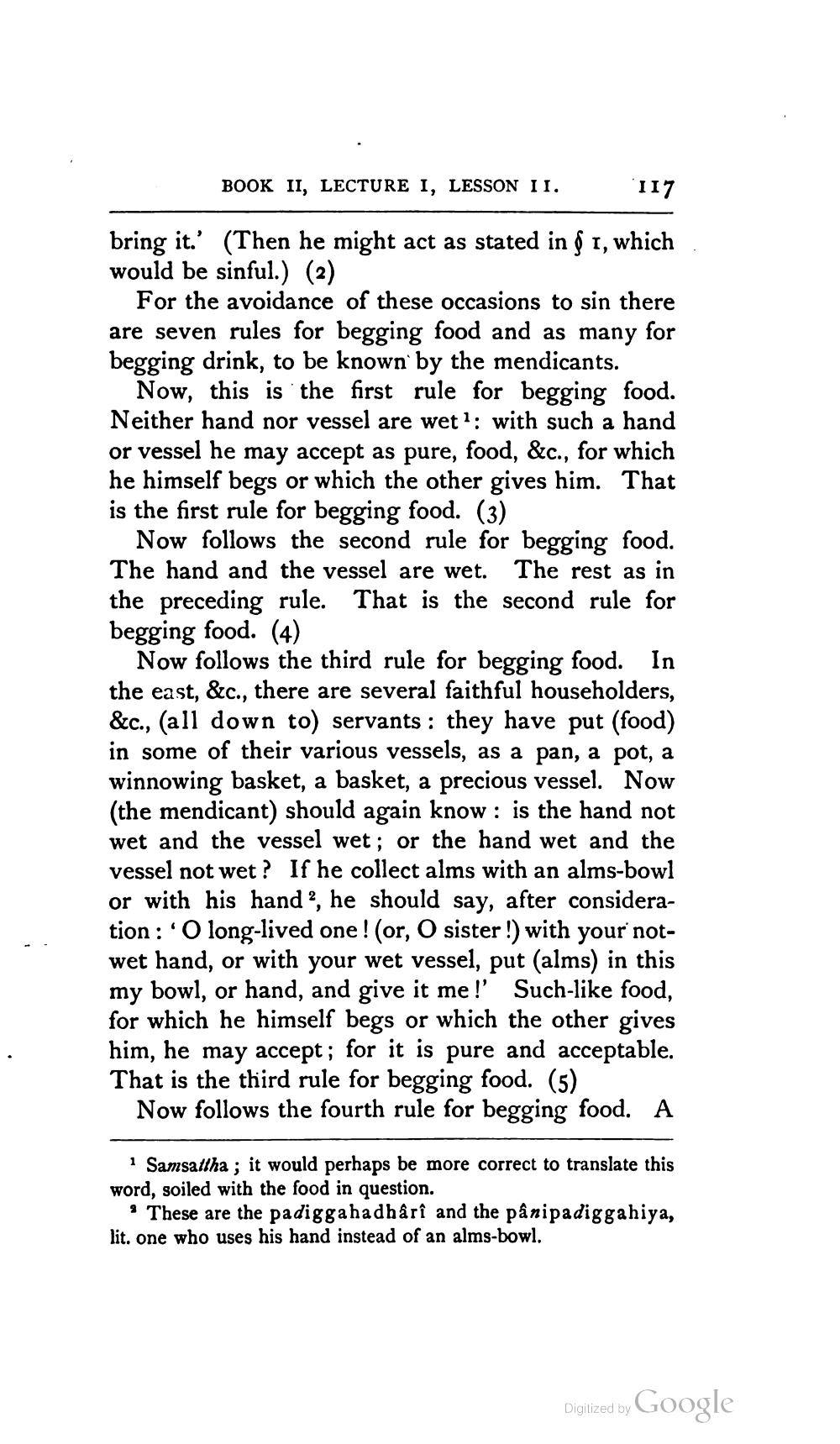________________
BOOK II, LECTURE I, LESSON 11.
117
bring it.' (Then he might act as stated in § 1, which would be sinful.) (2)
For the avoidance of these occasions to sin there are seven rules for begging food and as many for begging drink, to be known by the mendicants.
Now, this is the first rule for begging food. Neither hand nor vessel are wet 1: with such a hand or vessel he may accept as pure, food, &c., for which he himself begs or which the other gives him. That is the first rule for begging food. (3)
Now follows the second rule for begging food. The hand and the vessel are wet. The rest as in the preceding rule. That is the second rule for begging food. (4)
Now follows the third rule for begging food. In the east, &c., there are several faithful householders, &c., (all down to) servants : they have put (food) in some of their various vessels, as a pan, a pot, a winnowing basket, a basket, a precious vessel. Now (the mendicant) should again know : is the hand not wet and the vessel wet; or the hand wet and the vessel not wet? If he collect alms with an alms-bowl or with his hand ?, he should say, after consideration: 'O long-lived one! (or, O sister!) with your notwet hand, or with your wet vessel, put (alms) in this my bowl, or hand, and give it me!' Such-like food, for which he himself begs or which the other gives him, he may accept; for it is pure and acceptable. That is the third rule for begging food. (5)
Now follows the fourth rule for begging food. A
Samsattha ; it would perhaps be more correct to translate this word, soiled with the food in question.
. These are the padigga hadhârî and the pânipadiggahiya, lit. one who uses his hand instead of an alms-bowl.
Digitized by Google




